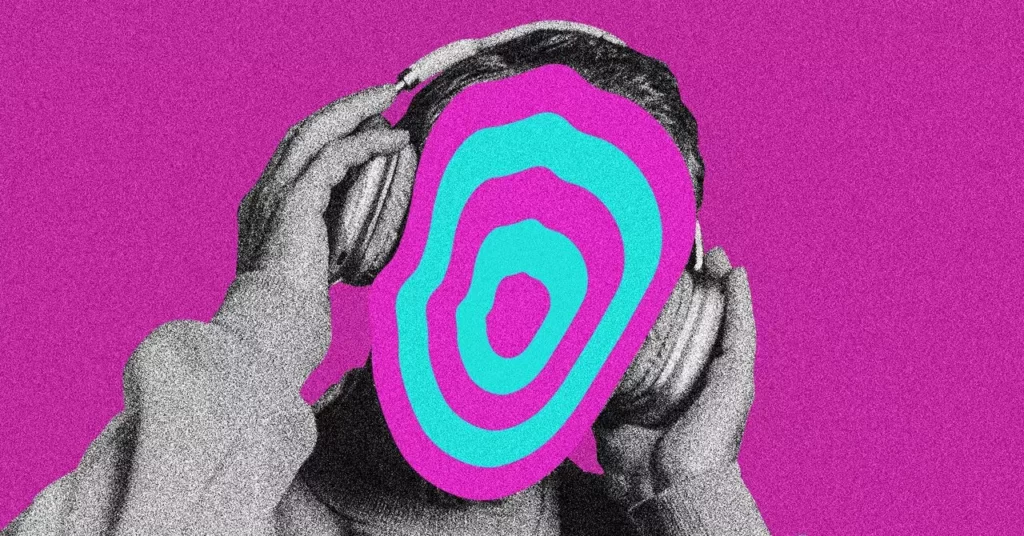Artificial intelligence’s infiltration into the realm of music heralds a paradoxical era—cherished artistry threatened by cold, algorithmic mimicry. While AI undoubtedly democratizes creation and offers technological marvels, it simultaneously erodes the foundational principles of authenticity that make music a deeply human endeavor. The allure of AI-generating tracks suggests limitless potential, but beneath the surface, a troubling pattern emerges: the commodification of genuine emotion and storytelling, diminished to mere data points for machines to assemble.
This technological surge presents a false promise of progress that, if unchecked, risks reducing music to waveform simulations devoid of soul. The rapid proliferation of AI-crafted songs—some indistinguishable from human work—poses a critical question: are we pioneering a new frontier of artistic expression or unwittingly facilitating the devaluation of human creativity? The danger lies in surrendering the cultural value of music to superficial algorithms that prioritize efficiency over authenticity, turning what once was a soulful craft into a mere marketplace commodity. Genuine artistry, built on years of emotional nuance and lived experience, is now being overshadowed by synthetic, cheap imitations.
Economic and Ethical Consequences: The Hidden Costs of AI Musical Expansion
The economic implications of AI in music are expansive yet subtly insidious. While a handful of AI-generated tracks generate negligible income—some artists claim around $200 monthly—their collective market influence is accumulating silently. This surge threatens the livelihoods of countless traditional artists who depend on genuine emotional connection and storytelling for sustainability. The commodification of AI music—characterized by low costs and rapid production—places human musicians at a competitive disadvantage, pushing them further into obsolescence.
Furthermore, the ethical landscape surrounding AI music remains foggy, marked by loopholes that invite exploitation. AI models trained on existing works risk infringing on intellectual property rights by producing derivative compositions without appropriate credit or compensation. These practices not only undermine creators’ rights but also threaten to flood the industry with plagiarized content, confusing audiences and diluting the value of original works. The absence of transparent policies compounds these issues, allowing unscrupulous actors to exploit AI’s capabilities while consumers remain unaware of the synthetic origin of what they’re listening to.
The production of provocative or niche content—such as explicit novelty songs—serves as a stark illustration of AI’s capacity for manipulation. AI can efficiently churn out taboo material designed solely to shock or attract niche markets, undermining societal norms and skewing cultural standards. Such content not only challenges ethics but also weaponizes AI’s affordability and ease to push boundaries, posing a threat to societal decency and the integrity of artistic expression.
The Disappearance of Trust: Consumers, Creators, and the Narrowing of Authenticity
Trust forms the bedrock of a thriving cultural ecosystem, yet AI’s unchecked ascendancy is eroding this fundamental principle. Currently, platforms like Spotify and Deezer lack rigorous systems for labeling or distinguishing AI-generated music from human compositions. The result is a marketplace flooded with synthetic content that masquerades convincingly as authentic artistry. Listeners seeking emotional depth and originality face a bewildering landscape where the line between genuine and artificial becomes increasingly blurred.
The proliferation of untagged AI music fosters deception and manipulates consumer choices. Audiences are unwittingly exposed to an ever-growing deluge of machine-made tunes that mimic the genres and styles of celebrated artists, often overshadowing or marginalizing authentic creators. This erosion of trust undermines the cultural value of music, turning it into a commodity subject to algorithmic manipulation rather than a genuine form of human expression.
Legislative and platform-driven transparency remains insufficient. Without clear policies requiring AI content to be labeled, consumers are left vulnerable, unable to discern whether they are listening to a living artist or a synthetic approximation. As this opacity persists, the risk of mass deception—and the resultant devaluation of music as an art form—escalates.
Artificial Talent or Algorithmic Manipulation? The Future of Musical Creativity
Despite the concerns, some argue that AI offers unprecedented opportunities for democratization, enabling aspiring artists to produce music without enormous resource investments. Yet, this democratization must be approached with caution. The risk is that AI could easily morph into a tool of exploitation, allowing corporations or unscrupulous actors to flood the market with recycled, low-effort content that diminishes truly talented human creators.
Instances such as AI-generated bands that achieve popularity primarily through algorithmic manipulation are symptomatic of a deeper flaw—an industry increasingly driven by artificial hype rather than artistic merit. Developing a coherent regulatory framework is vital; without it, the line between genuine innovation and deceptive practices remains dangerously thin. Policymakers should prioritize establishing standards for transparency, fair compensation, and intellectual property protection to safeguard the integrity of musical artistry.
Furthermore, the temptation for AI to mimic or remix existing songs without proper attribution opens Pandora’s box of copyright infringements. This undermines musicians’ rights and erodes the morality of the creative economy. The industry faces an urgent need to adapt its norms to ensure that technological advancement enhances—rather than diminishes—the cultural value of music.
Reclaiming Authenticity in the Age of Machines
As AI continues to evolve and embed itself into the musical landscape, it becomes a question of ethical stewardship. The industry must navigate this transformation with intentionality—embracing innovation while resisting the allure of quick, synthetic solutions that threaten the soul of music. Regulation must catch up to technology; algorithms should be transparent, and content labeled clearly, empowering listeners to make informed choices.
In essence, AI should serve as a tool to enhance human creativity—not replace it. The real challenge lies in preserving the emotional depth, storytelling, and cultural relevance that define genuine artistry. The danger is not in AI itself but in humanity’s reckless willingness to sacrifice authenticity for convenience and profit. Protecting the integrity of music demands a balanced approach—one that recognizes the value of human expression as irreplaceable and aims to shield it from becoming mere data in a vast, soulless digital marketplace.









Leave a Reply